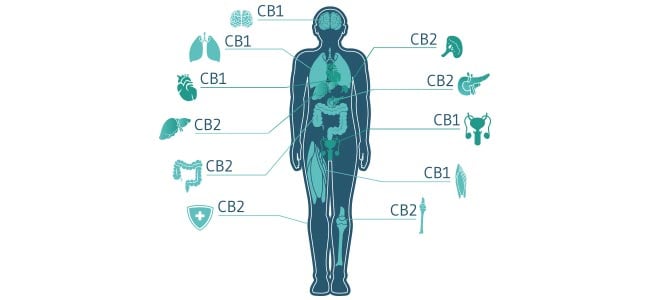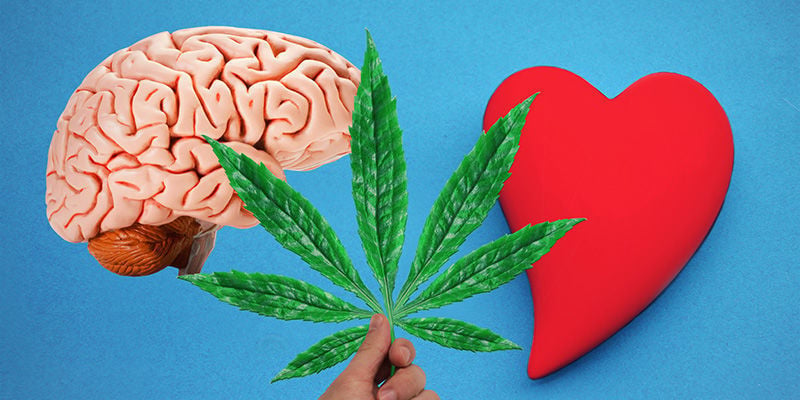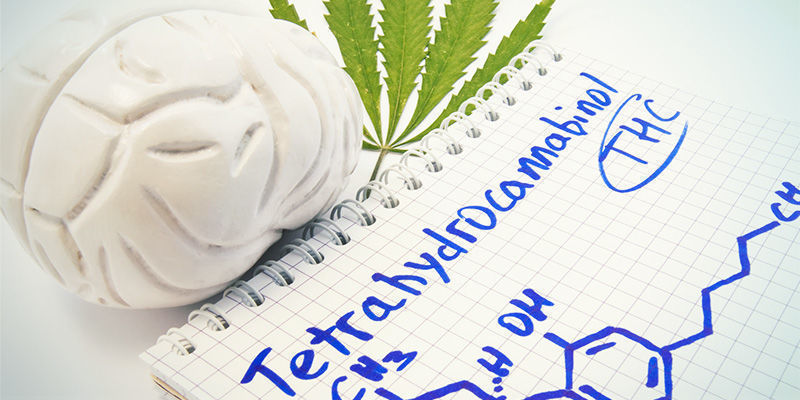What Cannabis Does To Your Brain
Cannabis has a complex relationship with our bodies, and interacts with us in many ways. Here is exactly what it does to the brain.
Although cannabis has been used by humans for thousands of years, it is only really within the last 20 years or so that we have really begun to understand how it affects us. Sure, cannabis has been used by what we would call modern society for decades, but political fear mongering and greed have barred research into what its actual effects are for a very long time.
For those of you who are not keen on sifting through the many scientific studies that now explain exactly how the compounds of cannabis interact with us, we thought we would put together a general summary explaining, on a very basic level, how cannabis interacts with our brains.
IT IS ALL ABOUT RECEPTORS
The compounds within cannabis are able to interact with our body thanks to the endocannabinoid system. This is a system of receptors within our bodies specifically designed to bind with cannabinoids, such as those found in cannabis. In fact, apart from the few similar chemicals we produce naturally, cannabis is the only source humans have found that contain cannabinoids – hence it being name the endocannabinoid system. Each and everyone one of us have this system – it is like we have evolved specifically to use cannabis!
Although we are focusing on the brain, the endocannabinoid system stretches throughout the body, with its receptors being present pretty much everywhere the central nervous system is. This explains why the various cannabinoids within cannabis have varying effects throughout the body. The receptors are split into two different categories, CB1 receptors, which are found within the brain, and CB2, found throughout the rest of the body.
FROM BLOOD TO BRAIN
So, now that we have covered how the compounds of cannabis interact with the brain, it’s time to look at what this actually does. Let’s say you are smoking a joint; when you inhale the smoke, cannabinoids, such as THC, pass through the lungs and directly into the bloodstream. From here they are whisked to the brain, where the cannabinoids start binding to receptors.
 MUNCHIES: IT’S ALL IN YOUR MIND
MUNCHIES: IT’S ALL IN YOUR MIND
One of the most notorious yet loved effects cannabis on the brain is the illusion of hunger, known as ‘the munchies’. THC binds to CB1 receptors within the hypothalamus – an area of the brain that regulates appetite. This causes the brain to send out signals telling the body it is hungry, and needs more food. The thing is, the body isn’t actually any hungrier, or in need of more nutrition than it was normally - it is just the cannabinoids making your mind think that it does. Whilst this may make a normal, healthy person put on an extra pound or two, this is an extremely good thing for those struggling to put on weight – such as those suffering from a loss of appetite due to chemotherapy or an eating disorder.
 TIME: A LIFETIME IN THE BLINK OF AN EYE
TIME: A LIFETIME IN THE BLINK OF AN EYE
Another effect of cannabis on the brain is time distortion. As many of us have experienced first-hand, cannabis can have a cerebrally stimulating effect. This is because cannabis affects the dopamine system within the brain; this feel good chemical is one of the main reasons smoking marijuana is so enjoyable, but it also results in things appearing to happen faster than they actually are. This, combined with cannabis’ effect on immediate memory (see below), can make hours seem like minutes, and minutes seem like hours.
 MEMORY: DID THAT REALLY HAPPEN?
MEMORY: DID THAT REALLY HAPPEN?
The last major effect of cannabis on the brain is its ability to distort and eradicate memory. Now, don’t worry, despite what naysayers may have you believe, smoking a joint isn’t going to permanently destroy your memory; but it can vastly impair it for the periods you are high. This is because the hippocampus – an area of the brain associated with short term memory – has a very high concentration of CB1 receptors within it. As these receptors are bound by THC and other cannabinoids, the functioning of short term memory is temporarily disrupted. Whilst this may not be a long term effect of cannabis use, as function is restored when the high wears off, it goes a long way to show how some strains, such as Amnesia Haze, got their name!
BRINGING IT TOGETHER TO HELP THE HUMAN RACE
Whilst these effects may or may not sound individually desirable, when they taken in the scope of their entirety they have a lot of potential to help those in need. They also a long way to explain why cannabis feels as good as it does.
Of course, we have not really touched on what cannabis does to the body but even looking at just how cannabis interacts with the brain can give a lot of insight into its potential. Here are 5 ailments that - according to research - may benefit fom the way cannabis affects the brain.
- (n.d.). RIA neuroscience study points to possible use of medical marijuana for depression - https://www.buffalo.edu
- Rhyne DN, Anderson SL, Gedde M, & Borgelt LM. (2016 May). Effects of Medical Marijuana on Migraine Headache Frequency in an Adult Population - https://www.ncbi.nlm.nih.gov
- Simone Tambaro, & Marco Bortolato. (2012/04/04). Cannabinoid-related agents in the treatment of anxiety disorders: current knowledge and future perspectives - https://www.ncbi.nlm.nih.gov
- Vigil JM, Stith SS, Diviant JP, Brockelman F, Keeling K, & Hall B. (07/11/2018). Effectiveness of Raw, Natural Medical Cannabis Flower for Treating Insomnia under Naturalistic Conditions - https://www.ncbi.nlm.nih.gov
-
 6 min
9 April 2024
What Is The Entourage Effect?
A product of the 1990s, the theory of the entourage effect is arguably one of the hottest topics of discussion in the cannabis world. Click here for an overview of the entourage effect and what...
6 min
9 April 2024
What Is The Entourage Effect?
A product of the 1990s, the theory of the entourage effect is arguably one of the hottest topics of discussion in the cannabis world. Click here for an overview of the entourage effect and what...
-
 5 min
13 January 2022
What Are The Side Effects Of THC?
THC-rich cannabis is one of the most popular recreational drugs in the world, as well as one of the most sought-after holistic herbs. And while cannabis is often praised for being natural and...
5 min
13 January 2022
What Are The Side Effects Of THC?
THC-rich cannabis is one of the most popular recreational drugs in the world, as well as one of the most sought-after holistic herbs. And while cannabis is often praised for being natural and...
-
 7 min
6 February 2020
Guide To The Effects Of LSD On The Mind And Body
LSD or “acid” is one of the most popular and powerful psychedelic substances, effective in tiny doses measured in millionths of a gram. What really goes on in your brain when you take a blotter?
7 min
6 February 2020
Guide To The Effects Of LSD On The Mind And Body
LSD or “acid” is one of the most popular and powerful psychedelic substances, effective in tiny doses measured in millionths of a gram. What really goes on in your brain when you take a blotter?
-
 2 min
15 November 2014
The Long-Term Effects of Peyote Use on the Brain
Peyote has been used for entheogenic practices for thousands of years - but what effect does such use have on the brain?
2 min
15 November 2014
The Long-Term Effects of Peyote Use on the Brain
Peyote has been used for entheogenic practices for thousands of years - but what effect does such use have on the brain?





 United States
United States















